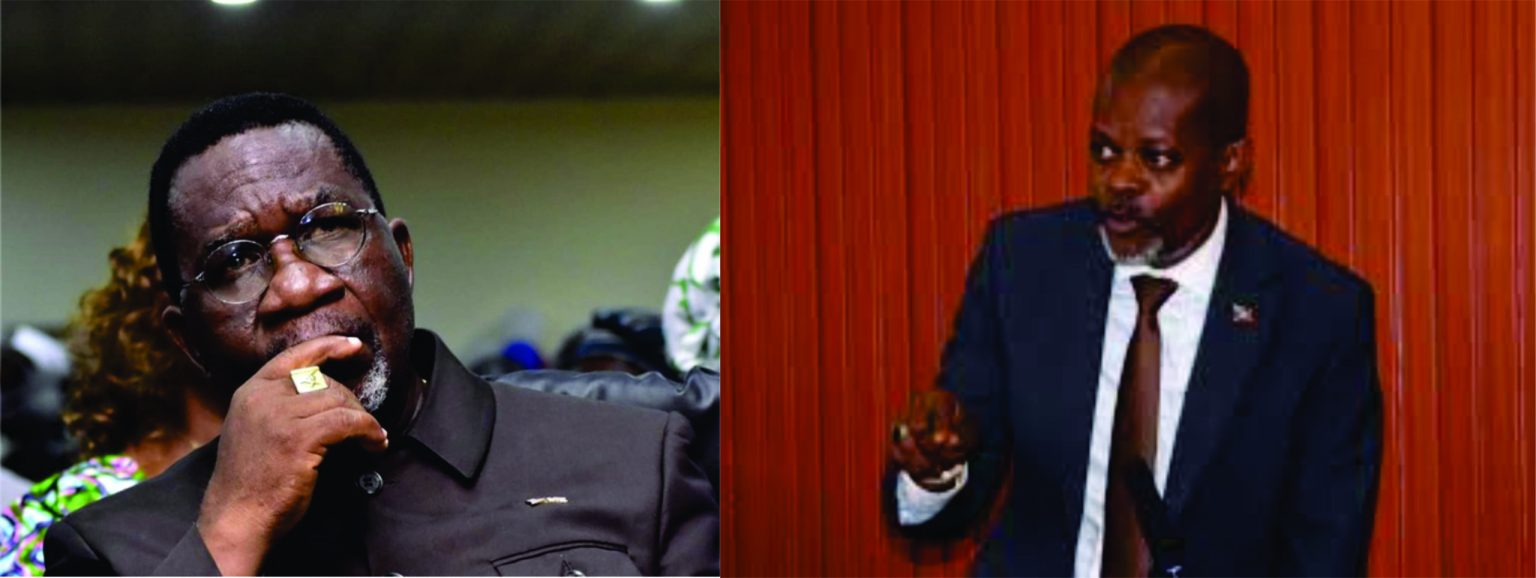Liberia’s Labor Minister, Cllr. Cooper Kruah, has once again become the center of controversy, this time for his refusal to disclose the specific job categories associated with 8,000 work permits issued to foreign nationals. This issue has ignited a firestorm of criticism, particularly given the high unemployment rate among Liberians. Senator Abraham Darius Dillon, Chair of the Senate Foreign Affairs Committee, has called for Minister Kruah’s imprisonment, accusing him of obstructing the Senate’s function by withholding crucial information. Dillon argues that the Minister’s failure to provide a categorized list of jobs held by foreign workers equates to contempt of the Senate and a violation of Article 44 of the Constitution, which safeguards the legislature’s authority. This controversy unfolds against a backdrop of growing concern over the outsourcing of work permit issuance to an Indian company by the Ministry of Labor and the Liberian Immigration Services.
Central to the dispute is the Senate’s mandate to oversee job creation for Liberians, a responsibility underpinned by the Decent Work Act. This legislation empowers the Ministry of Labor to regulate employment practices and protect Liberian jobs within the framework of liberalization policies. Senator Dillon contends that Minister Kruah’s actions undermine this legal framework by failing to demonstrate how the influx of foreign workers contributes to, or at least does not detract from, opportunities for Liberian citizens. The Senator emphasizes the importance of transparency in the issuance of work permits, stressing that the system should clearly indicate the specific job titles held by foreign workers, rather than simply listing their names, age, and nationality.
The Senator raised concerns that Liberians are being overlooked for positions they are qualified to fill. He highlighted the irony of investing in education and vocational training for Liberians only to have those jobs given to foreigners. Dillon argues that the Ministry’s pursuit of revenue generation through work permit fees, estimated at over one thousand US dollars per permit, should not come at the expense of Liberian employment. He points out that many of these foreign workers are reportedly earning substantial salaries, ranging from two to three thousand US dollars per month, for jobs that could potentially be held by Liberians.
Dillon’s persistent questioning of the Minister spans several months, escalating the tension surrounding this issue. He formally requested the Senate’s endorsement to summon Minister Kruah and address the issuance of these work permits. The Senator’s accusations of potential contempt charges underscore the seriousness of the situation and the growing pressure on Minister Kruah to provide the requested information. The implications of this controversy extend beyond the immediate issue of transparency. It touches upon broader concerns about economic fairness, the role of foreign workers in the Liberian economy, and the government’s responsibility to prioritize its citizens’ welfare.
On May 20, 2025, Minister Kruah appeared before the Senate Committee to provide an update on the 8,000 work permits issued to foreign nationals. While confirming the number of permits, he failed to furnish the Senate with a list of corresponding job descriptions and categories. This omission fueled Senator Dillon’s outrage and strengthened his calls for holding the Minister in contempt. The Minister’s refusal to disclose this information raised suspicions about the nature of the jobs being filled by foreign workers and whether Liberians are being unfairly excluded from these opportunities.
This incident has also reignited debate about the efficacy and fairness of Liberia’s labor policies. Critics argue that the current system allows for exploitation of loopholes, potentially enabling companies to prioritize cheaper foreign labor over qualified Liberian citizens. This controversy underscores the urgent need for comprehensive reform to ensure that work permit issuance aligns with national development goals and protects the interests of Liberian workers. The ongoing standoff between the Senate and the Labor Ministry has the potential to significantly impact Liberia’s labor market and the broader economic landscape. The outcome of this dispute will likely shape future policies regarding foreign labor and the government’s commitment to creating employment opportunities for its citizens.


